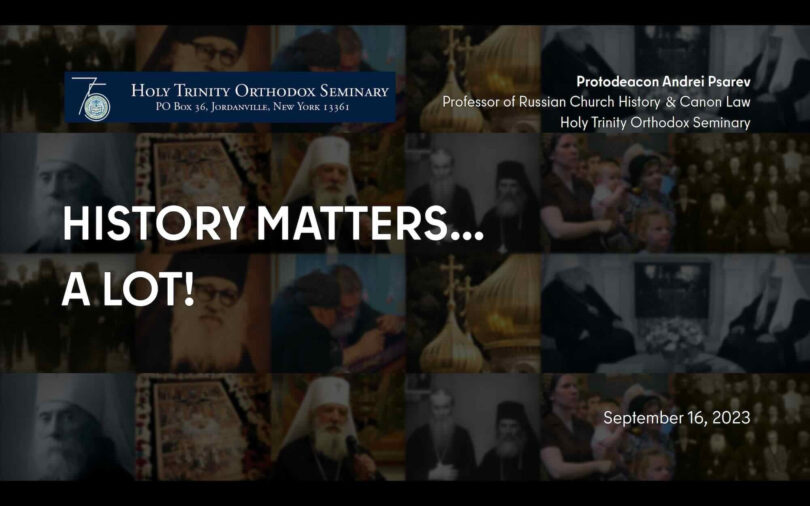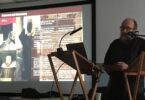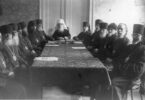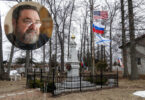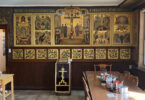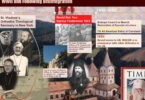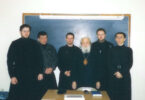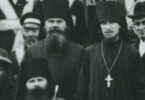On February 14, I wrote that the Russian Church Abroad, from its very first years, wanted to participate in the life of its homeland. The reception of сlergy and believers from within the former Soviet Union in 1990 was the high-water mark of this involvement.
Prior to our 2007 reconciliation with the Moscow Patriarchate, it was much easier to be casually critical about the situation in the Church within Russia. Understandably, since then, it has become a much more “personal” and delicate matter to voice such criticism, especially about the leader of the entire church.
Raising concerns requires a special methodology that is proper, in many ways, to a historian. First, “close” (attentive) reading of a problematic text: did a person literally say something problematic, or did one read it into the text? If the latter is true, then how strongly is this reading supported by the context? Yes, the sum of a person’s public acts may be taken as signaling his support for a certain cause (albeit not explicitly); however, a particular singled-out text may be interpreted in various ways.
Then there is the form in which the message is delivered. Years ago, I took an interview with the renowned Jesuit liturgics scholar Fr. Robert Taft. As a title for it, I took the American adage that Fr. Robert used: “Are you Part of the Problem, or Are You Part of the Solution?” For instance, if one disagrees with the statements of ROCOR bishops, would it not be more respectful and thoughtful to share to them privately rather than in online open letters (cf., Matt. 18:15–17)? The period of the Cold War, when both the Moscow Patriarchate and the Russian Church Abroad communicated with each other through polemical public declarations, demonstrated that this path leads nowhere.
Facts must be checked meticulously. For instance, in an open letter to the ROCOR Bishops, Mrs. Lena Zezulin writes: “From the very moment when ROCOR was established in the US after World War II, our church stood for freedom of religion and speech, for the defense of dissidents, and as a small but truthful witness against human rights abuses in the USSR. Now our church supports human rights abusers, war criminals and liars.”
The study of the ROCOR’s history – which was founded in 1920 – shows that our church was mostly concerned about human rights when it related to the communists’ crimes, and selectively so in other cases. I remember reading a response by Fr. George Grabbe written in 1967 to a certain American organization regarding the race riots in Newark, NJ – to the effect that for us, in the Russian Church Abroad, racial issues do not exist. During World War II, the “Fuhrer of the German Reich” was commemorated at services in the German Diocese; in the postwar years, our clergy and flock did not protest apartheid in South Africa or crimes against humanity committed by military dictatorships in South America.
Empathy is another tool of the historian. Historians must take a non-partisan, discriminating view of historical figures and events, while sincerely trying to understand their subjects and their rationale. I believe that historians are not activists, but like doctors cannot refuse treatment to anyone. It does not mean, though, that a doctor endorses the lifestyle of his patient. One may, for instance, be respectfully disapproving of a church leader’s political views, but it is unbecoming to vilify or dehumanize him.
These are some of the basics of historical analysis that I hold to be important. And since we are, moreover, dealing with church issues, fundamental theological notions must also be considered. For instance, the ROCOR cannot just stop commemorating Patriarch Kirill because the Church in Ukraine has ruptured these ties. If, hypothetically, we were to stop commemorating the Russian Patriarch, this would be not the end, but the beginning of the process leading to a church council, at which the precise matter would be evaluated in the view of the teaching of the Orthodox Church.
Having said all this, I am not arguing that there is “nothing to worry about” in the Russian Church. I am saying that if we want to be “part of the solution”, we must be aware of the “toolbox” that is available to us and use these tools consistently.

